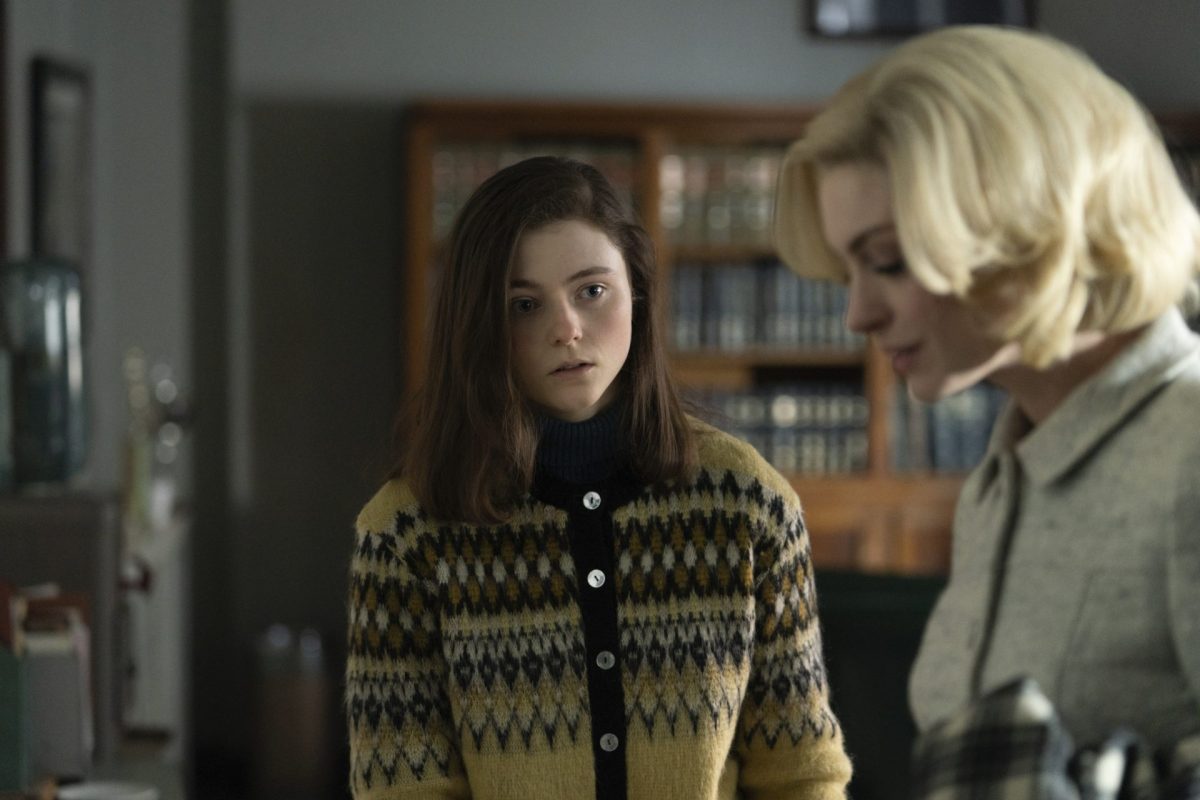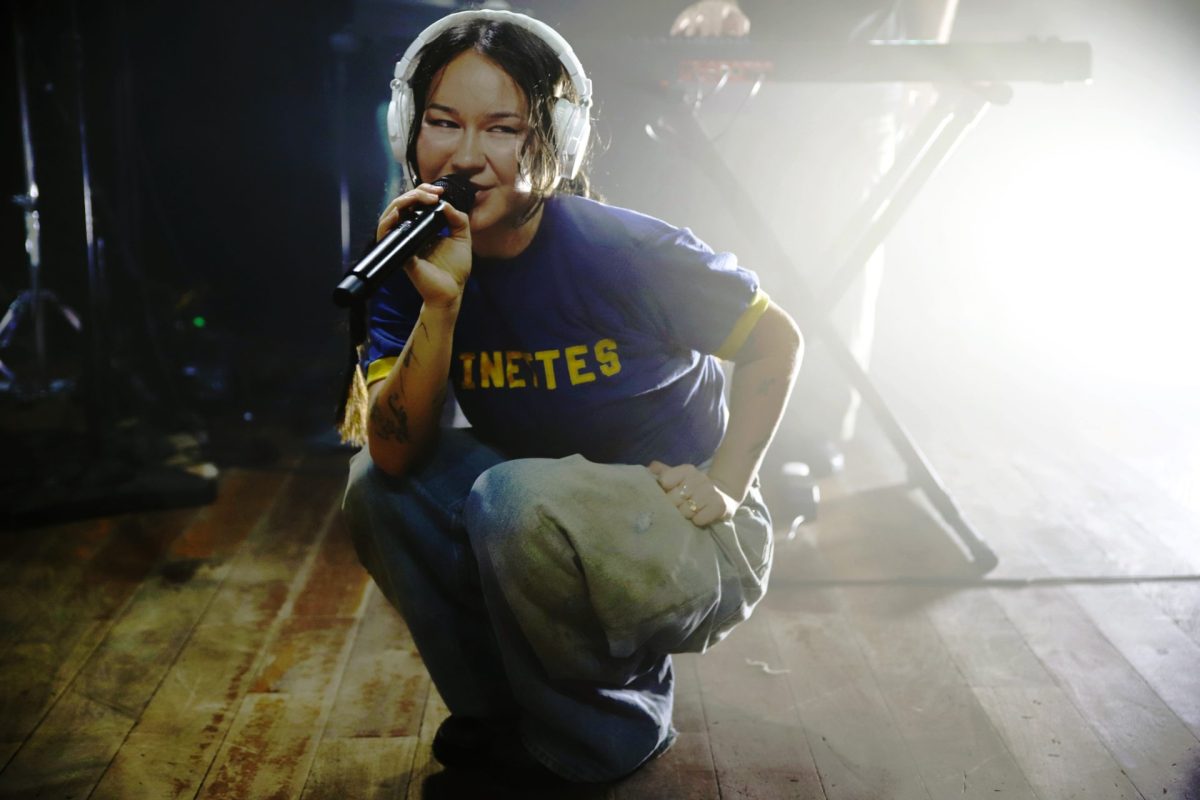During a Zoom Q&A session with several college publications Nov. 16, screenwriters Ottessa Moshfegh and Luke Goebel, along with director William Oldroyd, delved into the process of adapting the critically acclaimed novel “Eileen” for the big screen. They aimed to ensure a unique storytelling approach while preserving the novel’s original allure.
A psychological fiction written by Moshfegh, “Eileen” found immediate success after being published by Penguin Press in 2015. These victories included a 2016 Pen/Hemingway Award for a debut novel alongside being shortlisted for the 2015 National Book Critics Circle Award.
Moshfegh penned four additional novels within seven years of her award-winning debut, with her latest being the 2022 historical fiction “Lapvona.” In the time between career milestones she found time for a wedding ceremony, marrying author Luke Goebel. This relationship swayed into their creative pursuits, as both took on the challenge of adapting Odessa’s titular novel into a cinematic screenplay.
Their adaptation — now set for a wide release on Dec. 8 by the production company NEON — stays true to its source material while lending itself to the more expressive offerings of film.
“It’s sort of like working with fine marble,” Goebel said. “You have to cut away a lot to get to the new form, and it’s all really valuable.
Set in 1960s Massachusetts, “Eileen” follows the titular young prison secretary, played by Thomasin McKenzie, and her bond with a new counselor named Rebecca, played by Anne Hathaway. Rebecca’s quirky persona intrigues Eileen’s passive attitude as their friendship grows, luring her into a much darker and off-putting reality.
In bringing Moshfegh and Goebel’s work to the big screen, Oldroyd saw value in this female-driven narrative. His last feature, 2017’s “Lady Macbeth”, toyed with the same traits as Florence Pugh embodied an ambitious character trapped by societal pressures. He found this same allure in “Eileen” alongside the support of its founding screenwriters.
“When I make something, 50% of it is the idea and 50% of it is the infrastructure around the making of it,” Oldroyd said. “I knew that when I met Ottessa and Luke, these were people I could make a good piece of work with because I knew that I was going to be supported.”
The film version was forced to accommodate for the novel’s 274 page count. Within the bounds of a 98-minute runtime, “Eileen” prioritizes the ambiance of the period through details.
“We knew that what we needed to capture was an atmosphere, a time and a mood,” Moshfegh said. “That sort of vast and creepy view of the sea, Eileen’s house, the street that she drives down, her car in that sense that it had just been eaten away by salted rocks. All those things, the little details really added to the universe.”
As Moshfegh and Goebel clung to the narrative’s key traits, they remained open to the shocks of filmmaking and how this process served the story’s big picture.
“There were so many surprises, from the cast to working with Will, from the beginning, all of it was miraculous,” Goebel said. “To see something that we had completely handed over to the experience of the film and then to see it even after the actors had done their work just keep improving through the choices that were made.”
After premiering at the Sundance Film Festival earlier this year with positive reviews and a limited Dec. 1 release, “Eileen” now looks to make its biggest splash in its wide release.
A long way from the novel she first put out to the world in 2015, Moshfegh sees her work change from one medium to the next. In all this time she remains loyal to the plot she created while accepting the openness offered in both telling and receiving a good story.
“To a certain extent, you sort of have to let your work go and let people do with it what they will,” Moshfegh said.
The three creatives trust that the story will tell you what it needs, a faith they have carried through the entire adaptation process. In this trust they have found a relationship of creativity that goes two ways.
“You know it’s a very alchemical sort of process that at some point, you have to stop thinking about what you had in mind and start listening to the film that is in front of you,” Oldroyd said. “It sounds strange, but it’s the movie that tells you what it requires and then you have to follow that.”








